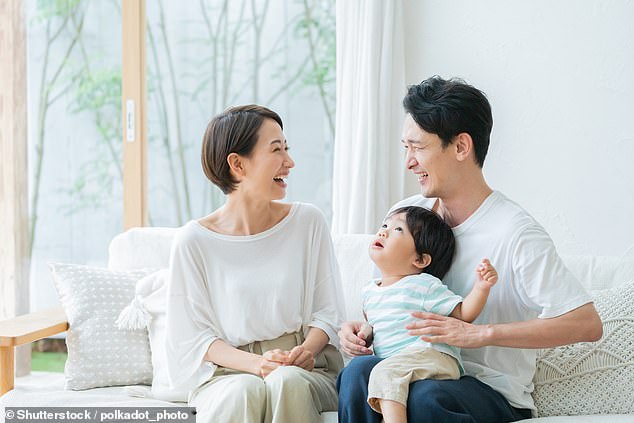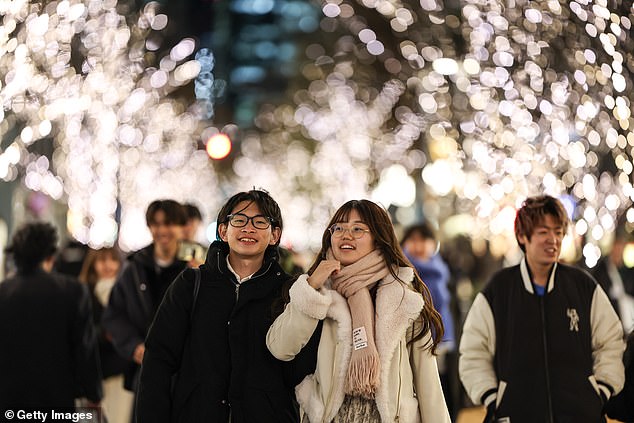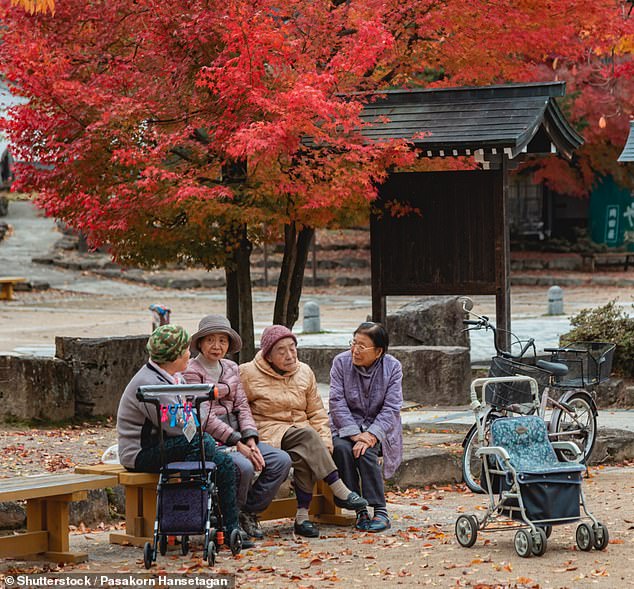A Japanese professor has predicted the year Japan will become extinct if the country does not fight its rapidly aging population.
It’s the year 2720 and far from sci-fi fantasies about flying cars, robots and intergalactic travel to distant stars, a Tokyo academic has made a damning projection.
Hiroshi Yoshida, a professor at Tohoku University’s Research Center for Economics and Elderly Society, says that after centuries of population decline, Japan will be left with only one child under the age of 14 in the year 2720. .
Yoshida has been running demographic simulations since 2012, and his latest finding is that, based on his current projection, his house will likely cease to exist within 695 years, according to The times.
Shocking data, released by Japan’s Ministry of Internal Affairs and Communications, led Yoshida to bring forward his estimate by 100 years after he revealed a sharp 2.3 percent drop in the number of children.
The number of births in Japan has steadily declined since the 1970s until 2005, when the number of deaths exceeded the number of births.
In 2022 there were almost a million more deaths than births in Japan and the percentage of people over 65 years of age currently stands at 29.9 percent of the population, an increase of 24.1 percent since 1960.
Yoshida told Japanese media that the country’s long recession means young people cannot marry or have children because of their low income.
A group of elderly Japanese women. A Japanese professor has predicted the year Japan will become extinct if the country does not fight its rapidly aging population.

A young Japanese family. Hiroshi Yoshida, a professor at the Research Center for the Economy and Society of the Elderly at Tohoku University, says that after centuries of population decline, Japan will be left with only one child under the age of 14 in 2720.
He said: ‘Unless the decline in the number of births is stopped, the “clock” hand will go back.
‘Japan could become the first country to become extinct due to its low birth rate. We should create an environment where women and older people can work and aspire to a society in which everyone actively participates.’
Japanese politicians have been trying to find solutions to the country’s demographic crisis and some policymakers have warned that they only have until 2030 to reverse the trend.
Rather than extinction, the most immediate threat to Japan are the problems that arise from having more older people to care for but fewer younger people in the workforce.
To address this news week reported that Japan plans to relax its tough immigration policies to allow more foreign workers to enter the country.
The government hopes to triple the number of foreign workers by 2040.
It also plans to hand out more cash incentives with 5.3 trillion yen (or £27 billion) earmarked to help couples start families.
Authorities hope that if couples see more cash in their wallets they will be more willing to have children.

A young couple in Tokyo. Last year, the Tokyo metropolitan government even launched its own dating app to try to increase the birth rate. A Tokyo official described the move as a “gentle boost” to help the capital’s young singles find their future wives and husbands.
The lack of work-life balance in Japan is another area the government wants to address.
In Tokyo, state government employees will adopt a four-day work week and, in another policy, parents of young children will be allowed to leave two hours early in exchange for a pay cut.
Among other incentives, the government is encouraging couples to marry and advocating for greater gender equality.
Last year, the Tokyo metropolitan government even launched its own dating app to try to increase the birth rate.
Users must provide proof that they are single, as well as proof of their income and a signed letter that they wish to get married.
A Tokyo official described the move as a “gentle nudge” to help the capital’s young singles find their future wives and husbands.


